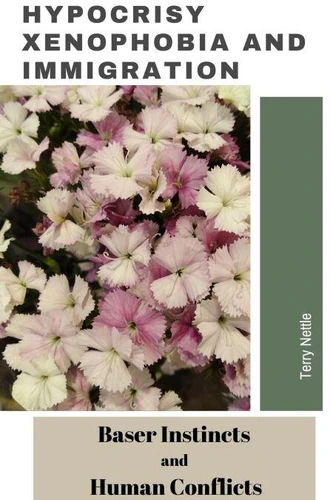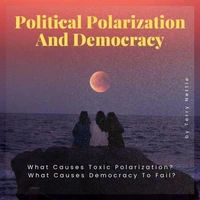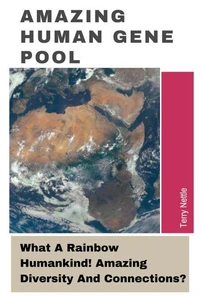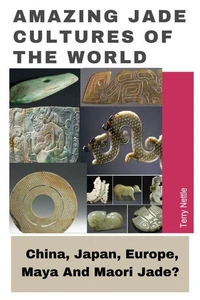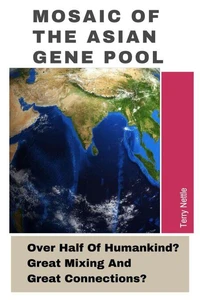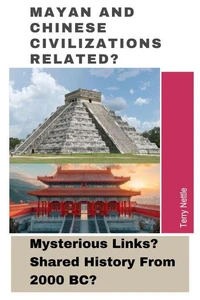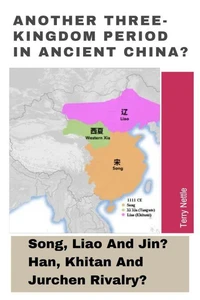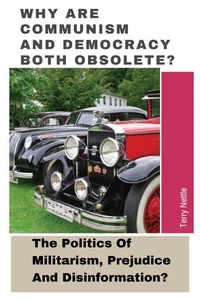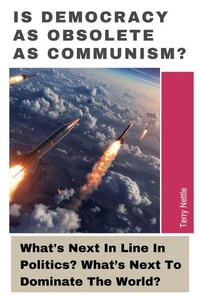Hypocrisy, Xenophobia and Immigration: Baser Instincts And Human Conflicts
Par :Formats :
Disponible dans votre compte client Decitre ou Furet du Nord dès validation de votre commande. Le format ePub est :
- Compatible avec une lecture sur My Vivlio (smartphone, tablette, ordinateur)
- Compatible avec une lecture sur liseuses Vivlio
- Pour les liseuses autres que Vivlio, vous devez utiliser le logiciel Adobe Digital Edition. Non compatible avec la lecture sur les liseuses Kindle, Remarkable et Sony
 , qui est-ce ?
, qui est-ce ?Notre partenaire de plateforme de lecture numérique où vous retrouverez l'ensemble de vos ebooks gratuitement
Pour en savoir plus sur nos ebooks, consultez notre aide en ligne ici
- FormatePub
- ISBN978-1-393-14112-9
- EAN9781393141129
- Date de parution24/02/2020
- Protection num.pas de protection
- Infos supplémentairesepub
- ÉditeurRelay Publishing
Résumé
This book examines the issues of hypocrisy, xenophobia and immigration, and the related prejudices and abuses in human societies. The human selfish gene is acquired evolutionarily for the purpose of self-protection. It drives the instinct to fear the unknown and the unfamiliar as possible dangers. That is why hypocrisy and xenophobia are hardwired into the human psyche. There is an urgent need to temper instinct with reason.
In many supposedly modern democratic countries, perfectly rational people can become so biased against foreigners and people of a different race and culture that they can completely forget their own immigrant ancestry and history. As a result, they say and do all sorts of unkind and even nasty things to those they deem to be "outsiders" or "invaders" or "aliens". The psychological basis of forced migrations, conflict-triggered migrations and economic migrations are examined as they relate to the early European migrants, the later Chinese, Indian, Jewish and the Muslim migrants.
The violent rejection of immigrants and foreign talents, and the resulting xenophobia, is now plaguing every country in the modern world, especially in the advanced Western countries. To break out of such a seemingly intractable racial and religious social environment, there is a need to fundamentally change the existing political culture of exclusivity. The author proposes that successful people from deprived backgrounds should get together and start a new type of youth-oriented political party, specifically designed to attract younger people of all backgrounds, race and religion, to build a new society of equality and fairness for all.
In many supposedly modern democratic countries, perfectly rational people can become so biased against foreigners and people of a different race and culture that they can completely forget their own immigrant ancestry and history. As a result, they say and do all sorts of unkind and even nasty things to those they deem to be "outsiders" or "invaders" or "aliens". The psychological basis of forced migrations, conflict-triggered migrations and economic migrations are examined as they relate to the early European migrants, the later Chinese, Indian, Jewish and the Muslim migrants.
The violent rejection of immigrants and foreign talents, and the resulting xenophobia, is now plaguing every country in the modern world, especially in the advanced Western countries. To break out of such a seemingly intractable racial and religious social environment, there is a need to fundamentally change the existing political culture of exclusivity. The author proposes that successful people from deprived backgrounds should get together and start a new type of youth-oriented political party, specifically designed to attract younger people of all backgrounds, race and religion, to build a new society of equality and fairness for all.
This book examines the issues of hypocrisy, xenophobia and immigration, and the related prejudices and abuses in human societies. The human selfish gene is acquired evolutionarily for the purpose of self-protection. It drives the instinct to fear the unknown and the unfamiliar as possible dangers. That is why hypocrisy and xenophobia are hardwired into the human psyche. There is an urgent need to temper instinct with reason.
In many supposedly modern democratic countries, perfectly rational people can become so biased against foreigners and people of a different race and culture that they can completely forget their own immigrant ancestry and history. As a result, they say and do all sorts of unkind and even nasty things to those they deem to be "outsiders" or "invaders" or "aliens". The psychological basis of forced migrations, conflict-triggered migrations and economic migrations are examined as they relate to the early European migrants, the later Chinese, Indian, Jewish and the Muslim migrants.
The violent rejection of immigrants and foreign talents, and the resulting xenophobia, is now plaguing every country in the modern world, especially in the advanced Western countries. To break out of such a seemingly intractable racial and religious social environment, there is a need to fundamentally change the existing political culture of exclusivity. The author proposes that successful people from deprived backgrounds should get together and start a new type of youth-oriented political party, specifically designed to attract younger people of all backgrounds, race and religion, to build a new society of equality and fairness for all.
In many supposedly modern democratic countries, perfectly rational people can become so biased against foreigners and people of a different race and culture that they can completely forget their own immigrant ancestry and history. As a result, they say and do all sorts of unkind and even nasty things to those they deem to be "outsiders" or "invaders" or "aliens". The psychological basis of forced migrations, conflict-triggered migrations and economic migrations are examined as they relate to the early European migrants, the later Chinese, Indian, Jewish and the Muslim migrants.
The violent rejection of immigrants and foreign talents, and the resulting xenophobia, is now plaguing every country in the modern world, especially in the advanced Western countries. To break out of such a seemingly intractable racial and religious social environment, there is a need to fundamentally change the existing political culture of exclusivity. The author proposes that successful people from deprived backgrounds should get together and start a new type of youth-oriented political party, specifically designed to attract younger people of all backgrounds, race and religion, to build a new society of equality and fairness for all.

